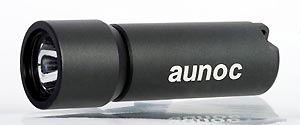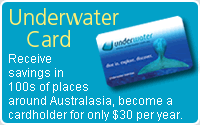- Home
- Directory
- Shop
- Underwater Cameras - Photographic Accessories
- Smartphone Housings
- Sea Scooters
- Hookah Dive Systems
- Underwater Metal Detectors
- Dive Gear
- Dive Accessories
- Diving DVD & Blu-Ray Discs
- Diving Books
- Underwater Drones
- Drones
- Subscriptions - Magazines
- Protective Cases
- Corrective Lenses
- Dive Wear
- Underwater Membership
- Assistive Technology - NDIS
- On Sale
- Underwater Gift Cards
- Underwater Art
- Power Stations
- Underwater Bargain Bin
- Brands
- 10bar
- AOI
- AquaTech
- AxisGo
- Backscatter Underwater Video and Photo
- BLU3
- Cayago
- Chasing
- Cinebags
- Digipower
- DJI
- Dyron
- Edge Smart Drive
- Eneloop
- Energizer
- Exotech Innovations
- Fantasea
- Fotocore
- Garmin
- Geneinno
- GoPro
- Hagul
- Hydro Sapiens
- Hydrotac
- Ikelite
- Indigo Industries
- Inon
- Insta360
- Intova
- Isotta Housings
- Jobe
- JOBY
- Kraken Sports
- LEFEET
- Mirage Dive
- Nautica Seascooters
- Nautilus Lifeline
- NautiSmart
- Nitecore
- Nokta Makro
- Oceanic
- Olympus
- OM System
- Orca Torch
- Paralenz
- PowerDive
- QYSEA
- Scubajet
- Scubalamp
- Sea & Sea
- SeaDoo Seascooter
- SeaLife
- Seavu
- Shark Shield
- Sherwood Scuba
- Spare Air
- StickTite
- Sublue
- Suunto
- SwellPro
- T-HOUSING
- Tusa
- U.N Photographics
- Venture Heat
- XTAR
- Yamaha Seascooter
- Youcan Robot
Diving with Bells Palsy
For anyone curious enough I did my first dive the other day after having suffered from bell's palsy ( http://www.bellspalsy.ws/ ) since late March and wanted to pass on my experience for anyone else.
I have palsy on the left side of my face which has now recovered enough for me to contemplate diving. My main concern was my eye (since I cannot fully close it without concentrating) drying or getting irritated and my mouth not being able to hold the regulator properly.
Well on the boat the sea air didn't seem to trouble my eye too much although I think it probably would if I really couldn't close my eye at all. Over time I'm sure the salt wouldn't help either. I didn't have too much trouble with the regulator but then I can now hold and drink from a straw so my mouth has regained quite a bit of strength. Earlier I doubt I'd have been able to use one.
Not sure how much it affects equalizing as that does involve muscular action, but I would consider it now in hindsight since I only thought about it after I was in the water...and had troubles
To be honest the biggest effect was in not being able to fully smile my head off with everyone else on the boat afterwards
Hope that is useful to any fellow half faced sufferers...
Nick
I have palsy on the left side of my face which has now recovered enough for me to contemplate diving. My main concern was my eye (since I cannot fully close it without concentrating) drying or getting irritated and my mouth not being able to hold the regulator properly.
Well on the boat the sea air didn't seem to trouble my eye too much although I think it probably would if I really couldn't close my eye at all. Over time I'm sure the salt wouldn't help either. I didn't have too much trouble with the regulator but then I can now hold and drink from a straw so my mouth has regained quite a bit of strength. Earlier I doubt I'd have been able to use one.
Not sure how much it affects equalizing as that does involve muscular action, but I would consider it now in hindsight since I only thought about it after I was in the water...and had troubles

To be honest the biggest effect was in not being able to fully smile my head off with everyone else on the boat afterwards

Hope that is useful to any fellow half faced sufferers...
Nick
Contributed by Nick Lo added 2003-09-02
Replies of 3
- Simon MItchell added 2003-09-04
- I was asked to comment on this thread by another diver.
Nick has made some interesting observations, and these cover most of the important points I would make about Bell's Palsy and diving. For those who have not heard of the condition, it is a paralysis of the nerve to the facial muscles, usually on one side, and usually without any obvious cause. Most cases recover spontaneously over time.
The main concerns about diving would be, as Nick points out, the ability to protect the eye, and the ability to seal the lips around the regulator properly. Holding it with the teeth should not be a problem since the nerve to the jaw muscles is unaffected. Diving should not be attempted until resolution is sufficiently complete that these issues are no longer a problem.
Nick's observation about equalising the ears is interesting. I cannot think why Bell's palsy should interfere with this since the closure of the nose is achieved with external force (the fingers) and the activitiy of the pharyngeal muscles that might alter the opening of the eustachian tube is under the control of other nerves. A related condition known as "Bulbar Palsy" which involves other nerves (in addition to the facial nerve) might cause such problems however.
In addition to all of this, it is notable that diving itself can be a rare cause of a one sided facial nerve paralysis. The facial nerve passes through the middle ear on its way to the face, and there have been case reports of divers with middle ear barotrauma presenting with Bell's Palsy type symptoms. If I recall correctly, this usually corrects more quickly than Bell's Palsy from other causes, and I presume it was not the cause in Nick's case.
Simon Mitchell
Diving Physician
- Nick Lo added 2003-09-04
- Hi Simon,
You're right to presume the cause was not diving itself, it was in fact Herpes Zoster Virus aka Chickenpox. What I actually suffered from is called Ramsay Hunt Syndrome ( http://www.ramsayhunt.org/ ) of which Palsy is often a symptom.
With regards to my problems equalising there does seem to be a minor link between my ears and my palsy. For example, if I force a smile on the left side (the affected one) I get a slight "buzzing" in the left ear a little like the slight buzz you get as you begin to equalise. This is presumably partly a result of some slight synkinesis developed through improper nerve regrowth.
Also I know a lot of people partly use facial movements to assist in popping their ears (whether or not it is effective) and if I try as I type this I do have more control over the unaffected ear.
Lot's of fun, and look they even made a smiley for it -->
Nick
- sshendo added 2004-07-17
- After going to thailand and contracting Bells palsy on the plane on the flight over i was un able to dive whate a bummer .But this lead me to find the fastest cure possible which i belive is accupunture as it stimulates the nerves and make the musels contract , After the first treatment i could feel my facial muscels working . AND WITHIN TWO WEEKS I WAS BACK TO NORMAL . not quick enough to dive in Thailand but i could return to it as soon as i got Home.
Replies of 3
![]() Login or become a member to join in with this discussion.
Login or become a member to join in with this discussion.

 AquaTech Australia
AquaTech Australia
Since 1998 AquaTech has been at the forefront of the design and manufacture of professional photographic accessories.
Shopfront
-
 GoPro HERO13 Black Action Video Camera
GoPro HERO13 Black Action Video Camera
- Price A$ 649.00
-
 QYSEA Fifish E-MASTER - Inspection - Measurement - Survey
QYSEA Fifish E-MASTER - Inspection - Measurement - Survey
- Price A$ 19,000.00
-
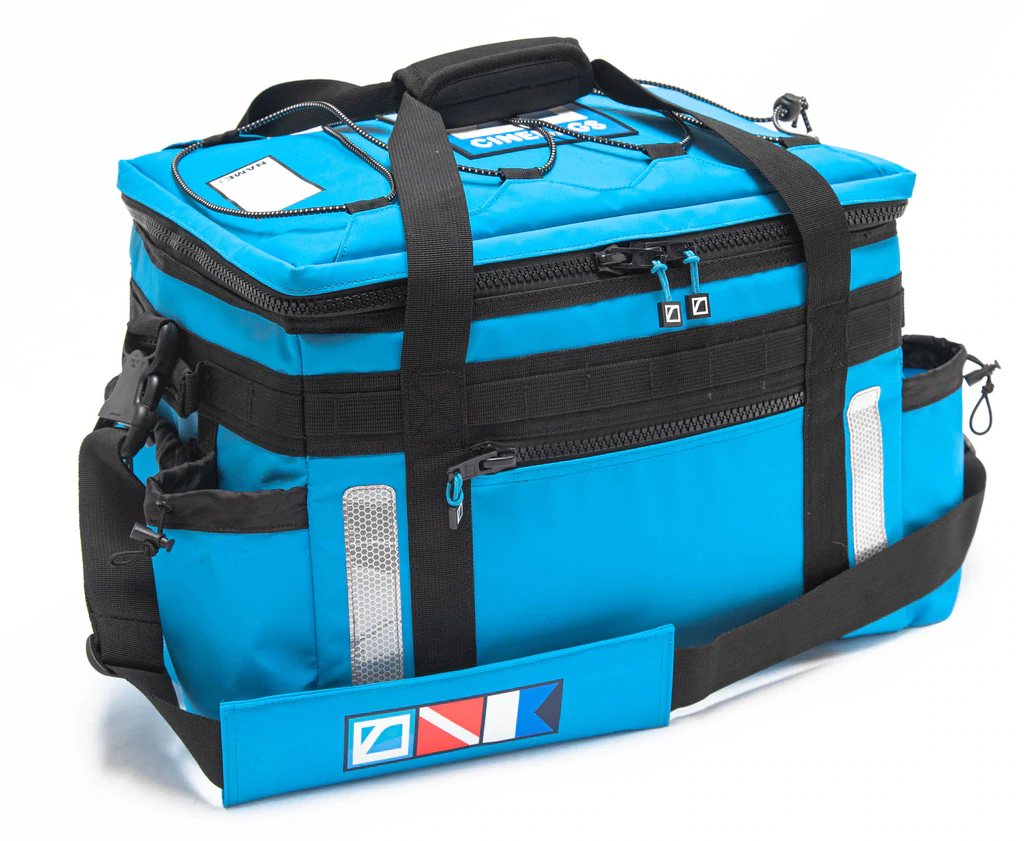 CineBags - CB80 Square Grouper XL
CineBags - CB80 Square Grouper XL
- Price A$ 365.00
-
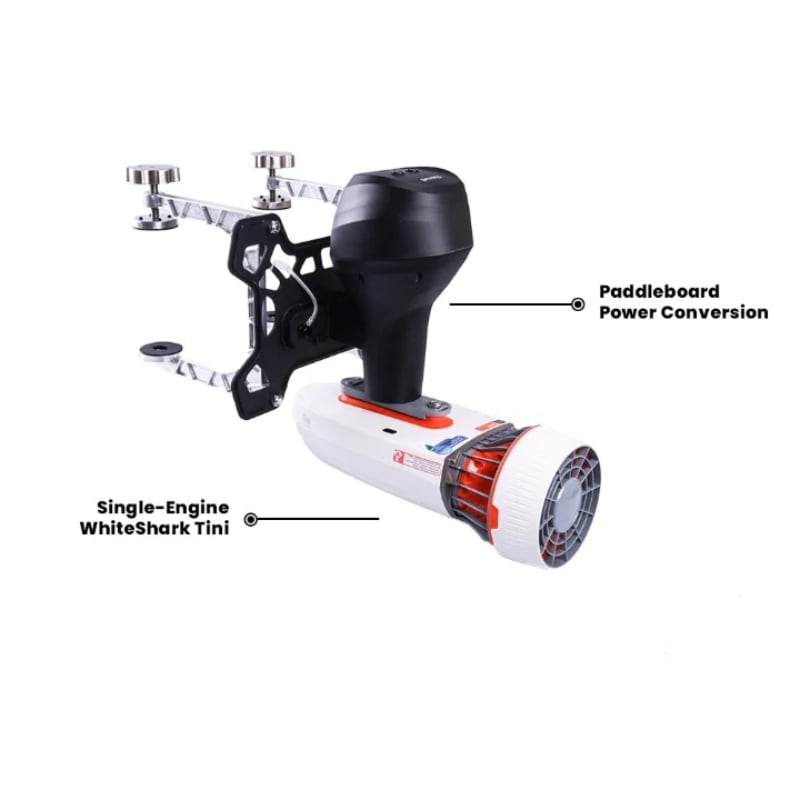 Sublue Paddleboard Power Conversion Kit
Sublue Paddleboard Power Conversion Kit
- Price A$ 599.00
-
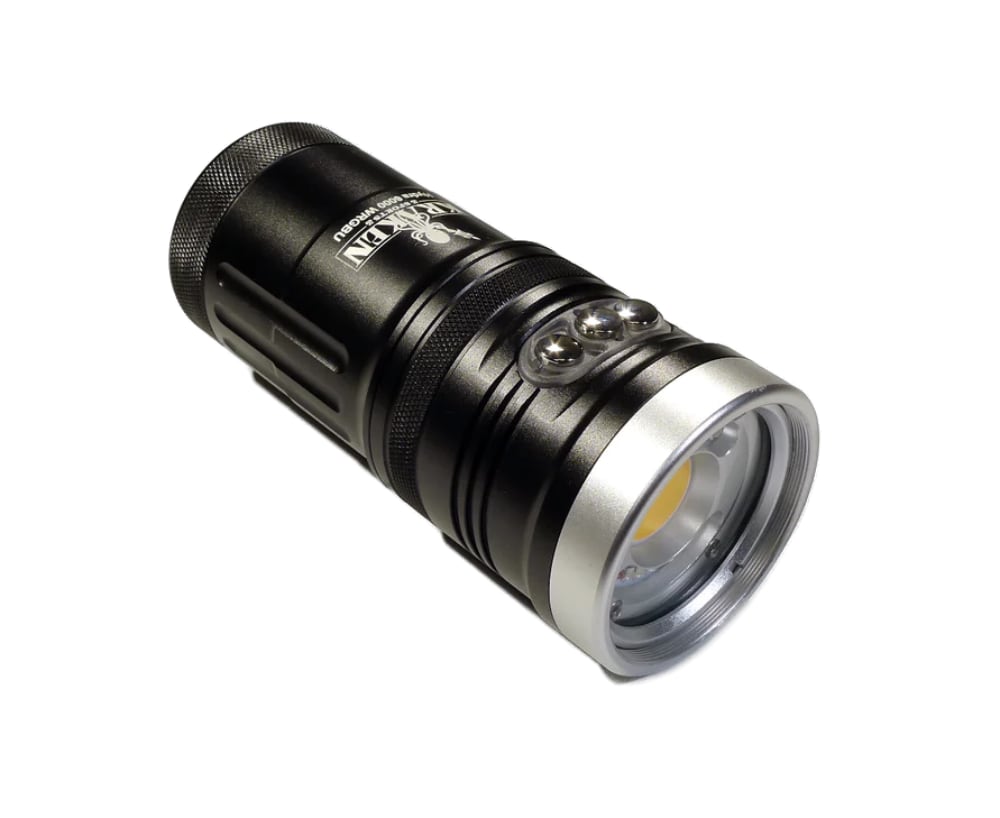 Kraken Hydra 6000 WRGBU
Kraken Hydra 6000 WRGBU
- Price A$ 899.00
-
 SwellPro Fisherman MAX 4500mAh 6S LiPo Flight Battery
SwellPro Fisherman MAX 4500mAh 6S LiPo Flight Battery
- Price A$ 429.00
-
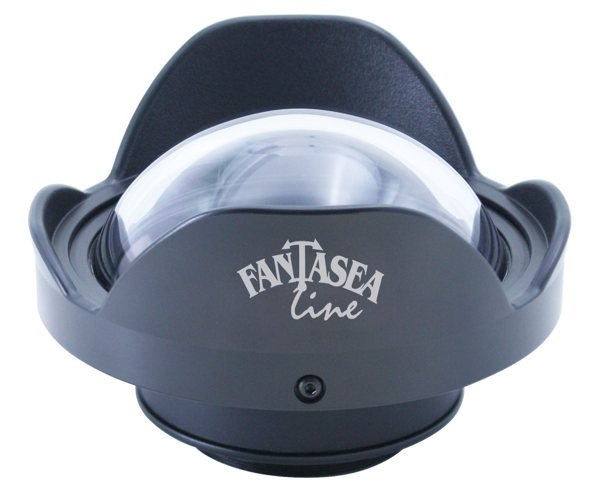 Fantasea UWL-400Q - Wide Angle Conversion Wet Lens 0.5x
Fantasea UWL-400Q - Wide Angle Conversion Wet Lens 0.5x
- Price A$ 599.00
Articles
-
 Destination Cocos (Keeling) Islands
Destination Cocos (Keeling) Islands
- If you are looking for a tropical holiday destination with amazing diving the Cocos (Keeling) Islands and Christmas Island should be on your list. The islands are part of Australia, but are actually located closer to Indonesia.
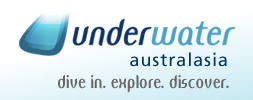


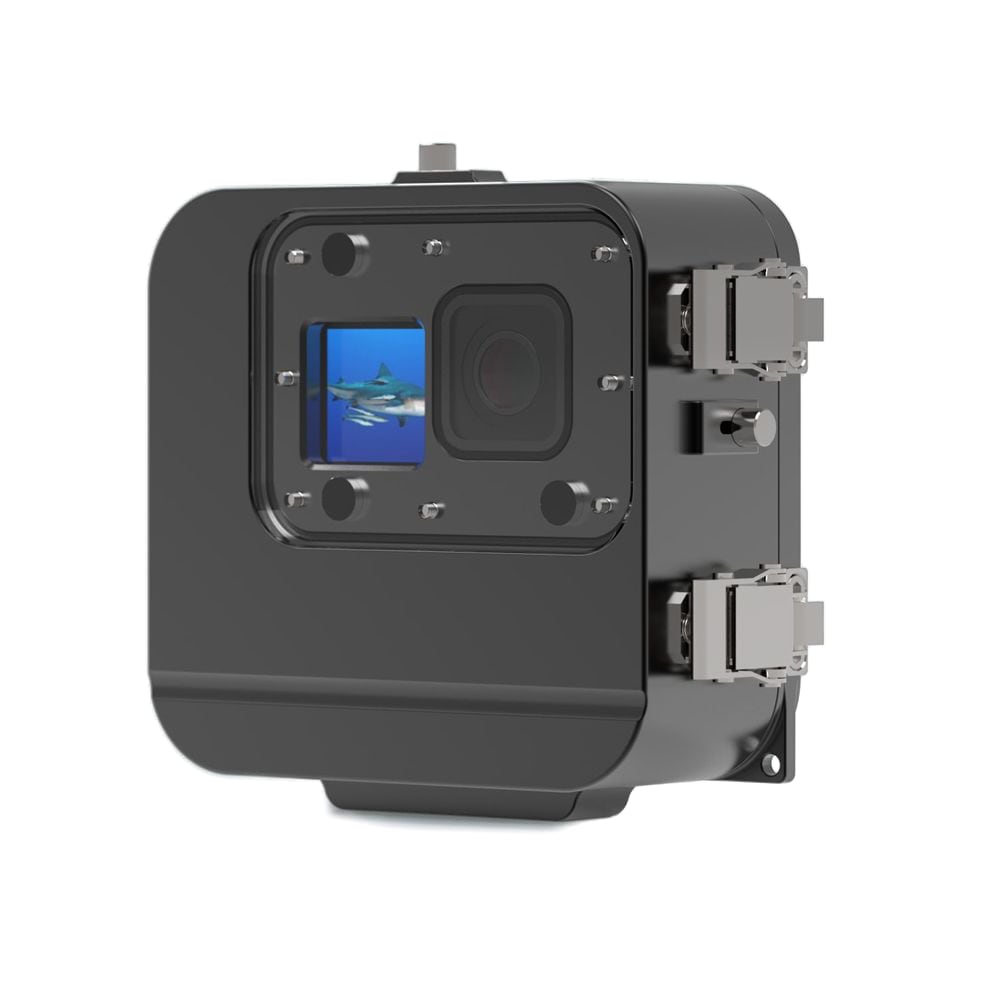 T-HOUSING Aluminium Deepdive H10 POWER for GoPro Hero9 10 11 12 and HERO13
T-HOUSING Aluminium Deepdive H10 POWER for GoPro Hero9 10 11 12 and HERO13



